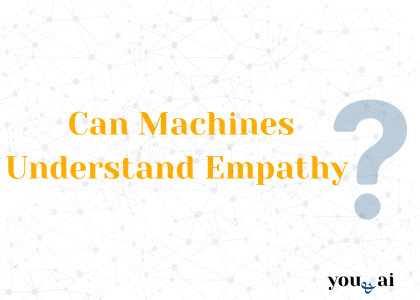AI With Heart: Can Machines Understand Empathy?
I’ve been thinking a lot about empathy lately, how we show it, how we feel it, and what it even means in a world where machines are starting to talk back.
A few weeks ago, I lost my uncle. It was sudden, and it hurt in ways I didn’t have words for. But what stayed with me even more was the moment I had to reach out to my cousins. I wanted to say something comforting, something that showed I cared, but my mind went blank. I didn’t want to say the wrong thing. So I opened ChatGPT and typed, “What can I say to my cousin who’s just lost their father?”
The response was thoughtful, gentle. And for a moment, it helped. Not just because it gave me words, but because it reminded me how hard it can be to be human, and how strange it is to turn to a machine for guidance in a moment of grief.
It made me wonder: Can machines understand empathy?
What Empathy Means to Me
To me, empathy is more than just saying “I understand.” It’s the quiet sense that someone sees you, that they’re willing to step into your world for a moment. It’s often messy, imperfect, and deeply personal. That’s why the idea of AI showing empathy feels both fascinating and unsettling.
Machines don’t have hearts. They don’t get tired or heartbroken or thrilled beyond words. But they’re learning to recognise our emotions: the sigh in our voice, the sadness between our words, the patterns in how we type late at night.
Is That Enough?
Some AI tools are already helping people manage anxiety, loneliness, and even grief. I’ve seen people feel comforted just knowing that something, something is responding kindly. It’s not the same as talking to a friend, but it’s also not nothing.
Still, I wonder: is that real empathy, or just a well-trained echo?
What We’re Asking
Maybe the better question isn’t “Can AI feel?”, but “Should it try to?”
If we’re going to build machines that support us emotionally, we have to be intentional about how we train them, what values we embed, whose definitions of compassion they learn from, and how we protect the human part of connection.
Where My Heart Lands
I don’t think machines need to feel to be helpful. But I do think we need to stay in the driver’s seat when it comes to emotional intelligence. Empathy isn’t just data, it’s care, context, and choice.
And while AI might never cry with us, it might one day sit beside us in our silence, and maybe that’s a start.
I still think about that moment I asked a machine to help me express something so deeply human. Maybe it didn’t understand my grief, but it helped me show up in it. And in that, there was something quietly beautiful.

